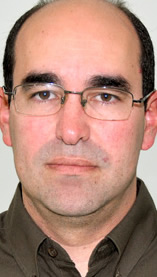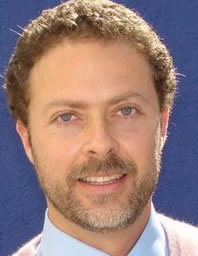|
2012 Pre-Conference Workshops
A Full Day Workshop
TOWARD A SCIENCE OF CONSCIOUSNESS
LOEWS VENTANA CANYON RESORT
Exploring the Frontiers of Mind-Brain Relationship
Part 1 Monday, April 9, 2012 (2:00p - 6:00p)
Part 2 Tuesday, April 9 2012 (9:00a -1:00p)
EXPLORING THE FRONTIERS OF MIND-BRAIN RELATIONSHIP
The workshop’s main objective is to discuss the relationship between the mind and the brain from philosophical and scientific perspectives. We focus on the discussion of topics about the mind-brain problem that are relevant, but usually neglected in academic debates. This symposium bridges philosophy of mind with science of mind to look empirically at transcendent phenomena, such as mystic states, near-death experiences and mediumistic experiences, that have confounded scientists for decades. The authors argue against the purely physical analysis of consciousness and for a balanced psychobiological approach. Representing disciplines ranging from philosophy and history to neuroimaging and physics, and boasting a panel of expert scientists and physicians who follow several lines of inquiry into mind-brain controversies, this workshop challenges the audience to form their own conclusions—or reconsider previous ones.
   
Saulo de Freitas Araujo Stuart Hameroff Julio Peres Alexander Moreira-Almeda
Materialism’s eternal return:
Recurrent patterns of materialistic explanations of mental phenomena
Since the new developments of neurotechnologies for studying the brain functioning in the second half of twentieth century, a new wave of enthusiasm for materialistic explanations of mental phenomena has invaded philosophy and psychology departments worldwide. The culmination of all this was the so-called “decade of brain” in the 1990s. However, a closer examination of the arguments presented by some of these new materialists reveals recurrent patterns of analogies and metaphors, besides an old rhetorical strategy of appealing to a distant future, in which all the problems will be solved. This paper intends to show that these new forms of materialism repeat discursive strategies of older versions of materialism, especially the French materialism of the 18th century and the German materialism of the 19th century. Finally, an interpretation for materialism’s eternal return will be offered.
Saulo de Freitas Araujo, PhD, Professor of History and Philosophy of Psychology at the Federal University of Juiz de Fora (Department of Psychology). Doctorate in philosophy (State University of Campinas/University of Leipzig). Research interest in history and philosophy of psychology, and the mind-brain problem in philosophy and psychology.
The ‘Quantum Soul’ - A Scientific Hypothesis
The concept of consciousness existing outside the body (e.g. near-death and out-of body experiences, NDE/OBEs, or after death, indicative of a ‘soul’) is a staple of religious traditions, but shunned by conventional science because of an apparent lack of rational explanation. However conventional science based entirely on classical physics cannot account for normal in-the-brain consciousness. The Penrose-Hameroff ‘Orch OR’ model is a quantum approach to consciousness, connecting brain processes (microtubule quantum computations inside neurons) to fluctuations in fundamental spacetime geometry, the fine scale structure of the universe. Recent evidence for significant quantum coherence in warm biological systems, scale-free dynamics and end-of-life brain activity support the notion of a quantum basis for consciousness which could conceivably exist independent of biology in various scalar planes in spacetime geometry. Sir Roger Penrose does not necessarily endorse such proposals which relate to his ideas in physics. Based on Orch OR, we offer a scientific hypothesis for a ‘quantum soul’.
Stuart Hameroff, MD Professor of Anesthesiology and Psychology, and Director of the Center for Consciousness Studies at the University of Arizona in Tucson, Arizona. A clinical anesthesiologist, Hameroff also organizes the well-known interdisciplinary conferences “Toward a Science of Consciousness.” He has collaborated with the eminent British physicist Sir Roger Penrose on the “Orch OR” theory of consciousness based on quantum computations in microtubules inside brain neurons. The theory suggests a connection between brain processes and fundamental spacetime geometry, the most basic level of the universe.
The Neurobiological Correlates of Meditation and Mindfulness
Mindfulness refers to a calm awareness of cognitions, sensations, emotions, and experiences. This state is frequently achieved through mindfulness meditation (MM) which is a practice that cultivates non-judgmental awareness of the present moment. MM has also become widely used in a variety of psychological, medical, and wellness populations. Recently, there have been a number of studies that have elucidated some of the neurophysiological processes involved with MM and other similar meditation practices. This paper provides a review of that literature, which includes neuroanatomy, neurophysiology, neurotransmitter systems, and recent brain-imaging advances.
Julio Peres PhD, Clinical Psychologist, PhD in Neuroscience and Behavior, Institute of Psychology, University of São Paulo, Postdoctoral at the Center for Spirituality and the Mind, University of Pennsylvania, and at Radiology Clinic/Neuroimaging Diagnostic, Federal University of São Paulo (UNIFESP), Researcher at Institute of Psychiatry, University of São Paulo, Program of Health, Spirituality and Religiousness (PROSER).
Research on Mediumship and the Mind-Brain Relationship
Mediumship, an experience widespread throughout human history, can be defined as an experience in which an individual (the so-called medium) purports to be in communication with, or under the control of, the personality of a deceased. Since the 19th Century there is a substantial, but neglected tradition of scientific research about mediumship and its implications for the nature of mind. This chapter will review studies investigating the origins, the sources of mediumistic communications. Since one crucial aspect of mediumistic experience is the claim for the persistence of mind activity and the communication of personalities after bodily death, I discuss what would be evidence for personal identity and its persistence beyond the brain. After that, empirical evidence provided by studies on mediumship is presented and analyzed, including a brief biography of two very productive mediums: Mrs. Leonora Piper and Chico Xavier. Finally, I discuss the implications of these data for our understanding of mind and its relationship with the body. Applying contemporary research methods to mediumistic experiences may provide a badly needed broadening and diversification of the empirical basis needed to advance our understanding of the mind-body problem.
Alexander Moreira-Almeida, MD PhD was trained in psychiatry and cognitive-behavioral therapy at the Institute of Psychiatry of the University of SãoPaulo, Brazil, where he also obtained his Ph.D. in Health Sciences investigating the mental health of Spiritist mediums. Formerly a postdoctoral fellow in religion and health at Duke University, he is now Professor of Psychiatry at the Federal University of Juiz de Fora School of Medicine and Founder and Director of the Research Center in Spirituality and Health, Brazil ( www.ufjf.br/nupes-eng). His main research interest involves empirical studies of spiritual experiences as well as the methodology and epistemology of this research field. His publications are available at www.hoje.org.br/elsh.
|



